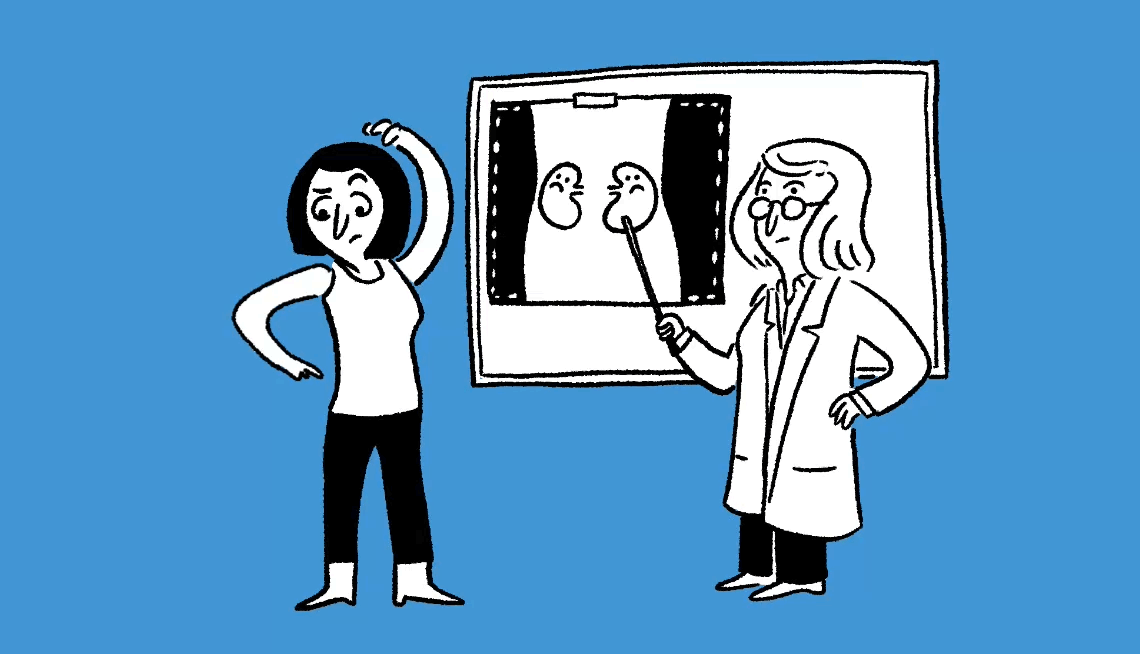AARP Hearing Center


What can I do to keep my kidneys healthy? My last blood test showed they weren’t functioning as well as they should.
When your lab results tell you that your kidneys aren’t working as well as they used to, it raises important questions: Is this just a normal part of aging? Can the decline be slowed? What choices can I make to improve my condition? In this column, I want to guide you step-by-step toward practical, evidence-based strategies to help preserve your kidneys’ health and slow further damage. Even when the numbers shift, there’s almost always room for positive action.
First, know that you’re far from alone. Thirty-four percent of U.S. adults 65 years and older have chronic kidney disease. Like you, about 1 in 3 older people are living with some degree of reduced kidney function. It’s good that you’ve been tested and diagnosed, because an estimated 90 percent of adults with chronic kidney disease don’t know they have it. I don’t mean to scare you, but kidney disease can be quite serious if it isn’t managed well. A recent study found that it’s one of the top 10 causes of death worldwide.
Your kidneys are remarkable multitaskers, so you want to take care of them. Each one filters about 50 gallons of blood a day, clearing waste, balancing minerals and regulating blood pressure. Over the years, illnesses such as diabetes and high blood pressure, or repeated exposure to certain medications, can damage their microscopic filters, called nephrons, reducing their efficiency. Most people don’t feel any symptoms until the damage advances, which is why blood and urine tests are so important. For more information, read this article on 6 Medications That Can Harm Your Kidneys.
The key measure is your eGFR (estimated glomerular filtration rate), a number that estimates how well your kidneys are cleaning your blood. If the number drops below 60 for three months or more, doctors call it chronic kidney disease. The other key test is the urine albumin-to-creatinine ratio, which shows if protein is leaking into your urine. This is an early sign of kidney stress or damage.
What can you do to slow things down or even stabilize their function?


Ask Dr. Adam
Adam B. Rosenbluth, M.D., is an internist and cardiologist in New York City. Each Monday, he’ll weigh in on your questions about how to make your body work better for you. His AARP book will be published in 2027. Join in on the conversation on social media @dradamrosenbluth to learn to move the needle on your personal health in an achievable way.
You’ll need to get to the root of the problem. For most older adults, as I said, kidney decline is tied to high blood pressure or type 2 diabetes. Managing those issues is an effective way to protect your kidneys. That might mean taking medications such as angiotensin-converting enzyme inhibitors, also called ACE inhibitors, or angiotensin II receptor blockers (ARBs).
If you have diabetes or even prediabetes, your doctor may discuss SGLT2 inhibitors. These newer drugs are designed to lower blood sugar and have shown kidney-protective effects, even in some patients without diabetes.




































































You Might Also Like
38 Ways to Protect Kidney Health
How to protect your kidneys, in sickness and in health
Kidney Stones: 8 Signs to Watch For
Learn about the warning signs of kidney stones, and what to do if you have these symptoms.
Tips to Manage Frequent Urination
Physician has advice to help with frequent urination